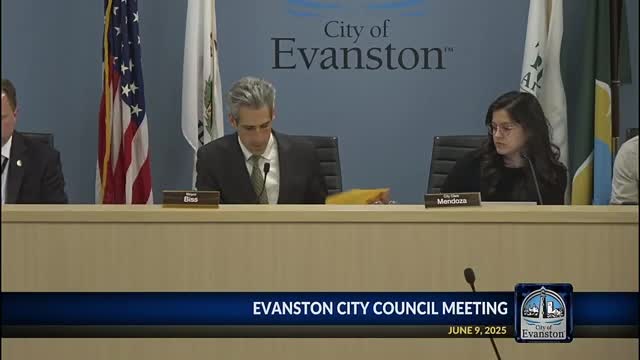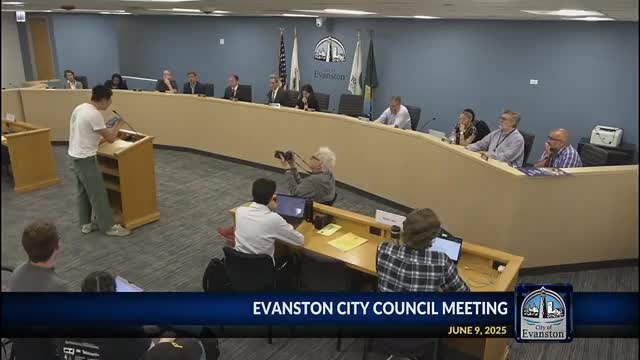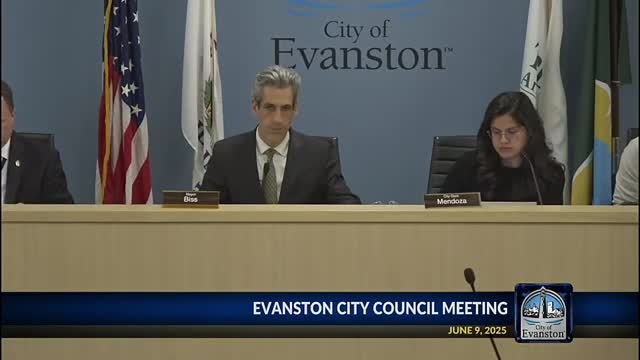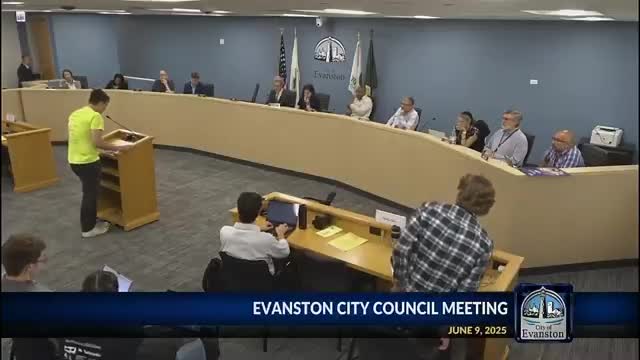Article not found
This article is no longer available. But don't worry—we've gathered other articles that discuss the same topic.

Council adopts ordinance to install four‑way stop at Harrison and Ewing

Residents and students call on Evanston officials to condemn anti‑Black harassment at Table 2 Sticks

Council approves TIF assistance for FreeFlow Kitchen after debate over guarantees and mentorship

